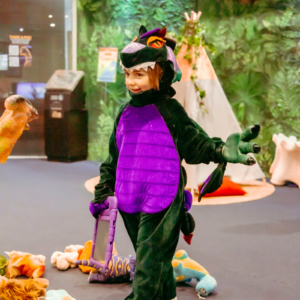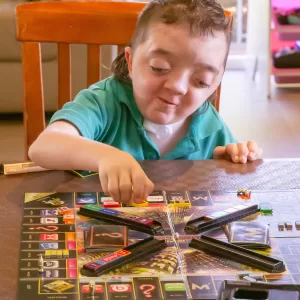
5 ways to help build effective communication skills for children and teens with disabilities
Effective communication skills play a crucial role in the development and well-being of children and teens, especially those with disabilities. Whether at home, in school, or out in social settings, the ability to express oneself confidently and understand others is key to building strong relationships and navigating everyday life. For children with disabilities, developing these […]
Effective communication skills play a crucial role in the development and well-being of children and teens, especially those with disabilities. Whether at home, in school, or out in social settings, the ability to express oneself confidently and understand others is key to building strong relationships and navigating everyday life.
For children with disabilities, developing these skills can sometimes be more challenging, but with the right support such as access to disability support services in Canberra and tailored strategies, they can thrive. In this blog, we will explore the importance of helping to build communication skills in children with disabilities and how this can positively impact their interactions, creating a more inclusive and engaging environment for them to grow and succeed.
Why is communication development Important for children and teens with disabilities?
Communication is much more than just speaking and listening—it’s the foundation of building relationships, expressing needs, and navigating the world with confidence. For children and teens with disabilities, developing strong communication skills can have a big impact on their emotional well-being, independence, and ability to form meaningful connections.
When children are able to express their thoughts and feelings, they feel understood and valued, which boosts their self-esteem and emotional resilience. This is particularly important for those who may struggle with traditional methods of communication. With the right support, such as from disability support services in Canberra, children can learn alternative ways to express themselves, whether it’s through speech, technology, or other forms of communication, helping them to build a sense of independence.
Additionally, effective communication allows children to advocate for their own needs, ask for help when necessary, and engage in social interactions with peers. These skills help build a sense of belonging and strengthen their relationships, both at home and in school. Ultimately, communication development empowers children and teens with disabilities to participate more fully in their communities, enhancing their overall quality of life.
5 Ways to Build Effective Communication Skills for Children and Teens with Disabilities
Use visual aids visual
Aids such as picture cards, charts, or communication apps are powerful tools for supporting understanding and expression.
For children who may find verbal communication challenging, these aids can provide an alternative way to convey their thoughts, needs, and emotions.
 Picture cards, for instance, can be used to create a visual schedule that helps children understand daily activities or choices.
Picture cards, for instance, can be used to create a visual schedule that helps children understand daily activities or choices.
Similarly, communication apps allow children to select images or words to express themselves more clearly, reducing frustration and encouraging independence. Visual aids can bridge the gap between what a child wants to say and what they can physically express, making communication more accessible and less stressful.
Encourage Social Interaction
Social interaction is one of the best ways for children to practice communication in real-life settings. Encouraging group activities like playdates, team sports, or group learning sessions can give children the opportunity to interact with peers and practice their communication skills in a natural, social environment.
Peer-to-peer interaction not only helps to improve verbal communication but also boosts confidence and helps build friendships, contributing to a child’s emotional and social development.
Disability support services in Canberra like Wattle Blue also offer another great opportunity for children and teens to practice their communication and allow them to learn how to take turns in conversation and understand social cues.
Looking for NDIS support care in Canberra? Learn more about our disability support services now
Practice consistency in routines
A consistent daily routine helps children with disabilities understand expectations and build reliable communication patterns. When children know what to expect each day, it creates a sense of security, allowing them to focus on communicating within those predictable moments. NDIS support care in Canberra such as the services we offer here at Wattle Blue include helping families create structured environments that encourage regular communication practice, from morning routines to mealtimes.
Over time, these repeated actions help solidify communication patterns and make it easier for the child to express themselves more independently.
Incorporate play into learning
Here at Wattle Blue, we recognise play as a powerful and engaging way to build communication skills in a relaxed, enjoyable environment. Through our disability support services In Canberra, we use games, toys, or sensory activities, so children can practice communication without even realising it. Activities like role-playing games, board games, or interactive sensory play allow children to follow instructions, ask questions, and make choices—all key elements of effective communication.
Through play, children can experiment with language, build vocabulary, and engage in non-verbal communication, such as gestures or facial expressions, that are vital for overall development. Plus, play-based learning makes the process fun and keeps children motivated.
Work with a speech therapist
Professional help from a speech-language therapist can be invaluable for children with disabilities who need extra support in developing communication skills. Speech therapists specialise in identifying the specific communication challenges a child may be facing and tailoring interventions to suit their individual needs. They work closely with families and educators to create a personalised plan that focuses on improving speech, language, and other forms of communication, whether verbal or non-verbal.
 These professionals can offer techniques that reinforce language development, as well as tools like communication devices or specialised therapy exercises. Seeking help from a speech therapist ensures that children receive the right kind of guidance, setting them up for long-term success in communicating more effectively.
These professionals can offer techniques that reinforce language development, as well as tools like communication devices or specialised therapy exercises. Seeking help from a speech therapist ensures that children receive the right kind of guidance, setting them up for long-term success in communicating more effectively.
Overall, developing effective communication skills is essential for the growth and well-being of children and teens with disabilities. By utilising visual aids, encouraging social interaction, maintaining consistent routines, incorporating play into learning, and seeking guidance from speech therapists, we can create a strong foundation for communication. These strategies not only enhance a child’s ability to express themselves but also promote emotional resilience, independence, and stronger relationships.
With consistent efforts and the right resources, significant improvements in communication skills are possible, allowing children and teens to thrive in all aspects of their lives. If you’re looking to support your child’s communication development, don’t hesitate to explore these techniques or reach out to professionals for tailored guidance. Every step you take brings your child closer to more confident and fulfilling communication. Reach out to us today to learn more about how we can help support your child’s journey to better communication.
Looking for NDIS support care in Canberra? Get in contact or learn more about us now



